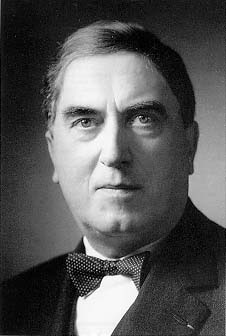
As it begins its 15th season of concerts, the Master Chorale of South Florida has added another element to its music-making, that of commissioner of new work.
On Sunday, the community chorale presented the first piece in what promises to be an annual series of new choral works with a setting of John Donne’s “Death Be Not Proud,” composed by James Kallembach, who heads the choral activities at the University of Chicago and has an extensive worklist of vocal pieces to his credit.
The piece begins with a Baroque-flavored gesture in the organ that sets the stage for a forceful, stern setting of Donne’s familiar sonnet. There are some interesting textures such as the two patterns that combine in the section beginning “Thou art slave to fate,” and overall Kallembach has captured the poet’s defiance admirably. It’s a piece that would be welcome in programs by ambitious choirs looking for fresh music, and its modernistic but accessible language goes down easy, as the warm reception by the large crowd at St. Gregory’s Episcopal Church in Boca Raton demonstrated.
The central piece on Sunday’s program (and the Saturday before in Fort Lauderdale) was the Requiem of the 20th-century French composer Maurice Duruflé, which now enjoys repertory status, having been embraced by choral groups hither and yon. Artistic director Brett Karlin built his program around the idea of mortality and how we deal with it, and in remarks that had a professorial and near-evangelical flavor, he discussed the power of the day’s texts and encouraged his listeners to give them serious thought.
Opening the program was “Invictus,” a setting of the well-known William Ernest Henley poem (“I am the master of my fate / I am the captain of my soul”) by the young (b. 1988) American composer Joshua Rist, who wrote the work while a student at Oregon State University. It is written in a pop-dramatic style congruent with film scores for dark epics like Batman or Game of Thrones, which is not meant as a dismissal. This is the lingua franca of much tonal classicism today, and while the piece contains no surprises, it has an immediately approachable sweep that was magnified by the heft of the large Master Chorale.
Associate conductor Steven Hirner took the stage next to lead the chorale in the fourth movement, “Wie lieblich sind deine Wohnungen,” of Brahms’s German Requiem, which will be sung in full by the chorale in May of next year. This is a beautiful piece of late Romantic writing that couches its words (from Psalm 84, “How lovely are thy dwelling places”) in a gentle, quietly radiant waltz.
Hirner’s tempo was on the slow side, and the music sounded a little heavier than is ideal. There was some gratifyingly good singing from the tenors and basses in their exposed writing after the opening phrase, which suggested promising things for next spring, when the chorale performs it with the Lynn Philharmonia.
Sandwiched between the Brahms and the Rist works was an organ solo by Timothy Brumfield, who accompanied the chorus and directs musical activities at St. Gregory’s. Aiming to demonstrate something of Duruflé’s technique in the Requiem, which is based on ancient Gregorian chant melodies, Karlin asked Brumfield to take the chant melody for “Ubi caritas” (which Duruflé used for his most popular short choral work) and make an improvisatory fantasy out of it. He complied with a big, bravura essay that made ample use of the lowest pedal tones in the St. Gregory’s organ, and in which the original chant melody could be easily discerned.
The Duruflé Requiem (Op. 9) has a special sound, strongly influenced by Fauré but also with its own timeless quality, which gives it a unique kind of delicacy that is not only quintessentially French but deeply informed by the traditions of the Catholic Church. Even when it’s going full out (as in the middle of the “Domine Jesu Christe”) it still is restrained by the elegance of Duruflé’s language — the technical aspects of which Karlin demonstrated by asking Brumfield to play a simple D major triad and then add the second and sixth degrees of the scale to it.
The chorale sounded strong and well-drilled, with a confident sound and few signs of tentativeness despite the often elusive quality of this music. With that came a certain lack of subtlety; things sounded a bit labored, a shade heavy throughout. Mezzo-soprano Kate Maroney gave a fine reading, with excellent work as well from cellist Manuel Capote, of the “Pie Jesu,” which also showed that the deliberate quality that the rest of the performance had might have been leavened somewhat had the chorale the luxury of an orchestral accompaniment.
But this is a large community chorus made up primarily of enthusiastic non-professionals, and they, Karlin and Hirner, should be commended for presenting an engaging reading of this lovely work, and for raising their game even more by taking on the responsibility of presenting new pieces.